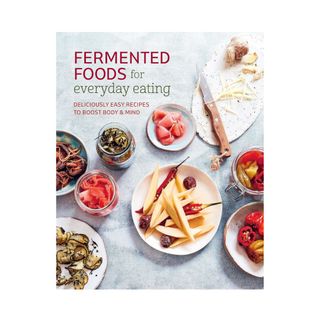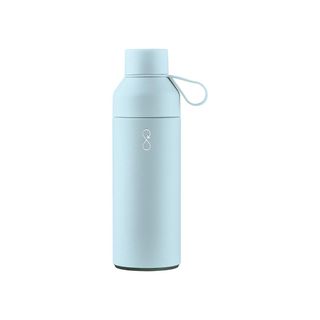
New Year, same chatter about diet culture? If there’s one thing we can agree on, it’s that January’s diet message can be just that terribly overwhelming. But that’s where simple, fuss-free, no-nonsense nutrition tips can help cut through the noise.
“Diet culture can be viewed as a set of beliefs that connect us to the idea that a thin body shape or size is superior and links this to the perception of better health and higher moral virtue,” registered dietitian, nutritional therapist and nutritional consultant Laura Clark say. Unfortunately, diet culture promotes restrictive eating and fad diets which are usually not sustainable, not to mention harmful to your health.
As January approaches, the start of a new year often becomes the natural opportunity for all of us to make positive changes to our lifestyle, with dieting often receiving more attention than before. “The feeling of a fresh start gives more permission to wipe the slate clean, let the past be in the past, and focus on weight goals with renewed vigor,” Clark adds.
But if you’re not sure where to start with your healthy eating goals, we spoke to a nutritionist and a dietitian to discover their top nutrition tips to help you feel your best self. So, to find out what nutrition hacks they use to boost your body and mind, stay here.
While you are here you may be interested in the benefits of conscious eatingor feast your eyes Em The nutritionist’s recipes that promise to make healthy eating easy. And don’t miss our guides intuitive eating or what happened when Senior from MC UK Health editor Ally Head tried one inflammation diet. Hunting for recipes? Scroll approved by experts healthy breakfast ideas, healthy snack ideas, healthy smoothie recipesplus what to eat after a workouthere.
The top 8 nutritionist-approved tips that promise to help you feel your best
1. Taste the food
This tip may seem simple, but as Clark says, it can make a huge difference in helping you feel good.
“We generally feel happier and more confident with habits that we give our full attention to, so give yourself permission to taste the foods you eat,” she says. “Minimize distractions and allow yourself the luxury of a chair and a plate for most of your eating.”
2. Stay hydrated
Staying hydrated isn’t just important in the summer. We should drink enough water all year round – and for more than one reason. “Hydration is essential for almost every bodily function, including digestion, brain function and energy,” explains the registered nutritionist Caroline Farrell.
Award-winning nutritionist Emily English agrees, adding: “This one is simple but highly effective at boosting your overall energy and mood. It will help keep your energy levels up, support your digestion, keep the hangovers at bay and make your skin glow.”
But how much should we are drinking? “General guidelines recommend drinking 1.5 to 2.5 liters of water per day, but your specific needs may vary depending on factors such as activity level and climate,” answers Farrell.
Not sure if you’re drinking enough H2O? “A simple way to check your hydration is to check the color of your urine,” says Farrell. “Light straw indicates you are well hydrated, dark yellow suggests you need to drink more, and amber or darker may indicate dehydration.”
If drinking plain water doesn’t come naturally, Clark recommends trying some fruit tea or flavoring your water with lemon or cucumber. Drink lemon water every day can boost your hydration in a tastier way while you drink Mint water has many benefits. The herb has been used for centuries as a natural digestive remedy for bloating, gas and nausea.
3. Keep it simple
In 2025, the internet has no shortage of ‘diets’. For example, some people swear by it ginger shotsothers use apple cider vinegar for weight losswhile the inflammation diet has been doing the rounds for a long time. And that’s before we even mention it TikTok’s sleeping girl mocktail or the trend Glucose goddess ‘hacks’ which are designed to help you stabilize your blood sugar spikes.
The thing to note is that everyone (and their bodies) are different. So what works for you won’t necessarily work for someone else. But when you boil it all down, Clark says simplicity is the key. “Stop chasing the latest diet trend and keep it simple. Basing meals on a source of protein, carbohydrates and fiber goes a long way.”
Fortunately, you are not spoiled for choice delicious dinner recipes that tick all the boxes.
4. Make sure you meet your protein goals
Speaking of food egg whiteFarrel also emphasizes that every meal should not only contain a source of good stuff, but that your plate should also contain enough protein. Doing so will support muscle recovery, fullness and energy levels.
“A general guideline for serving size is approximately the size of your palm per meal, but if you are very active, such as regularly going to the gym or running, you may need more to support recovery and performance,” notes the nutritionist op.
“Including a variety of protein sources, such as lean meats, fish, eggs, dairy, legumes, tofu and nuts, ensures you get a broad spectrum of nutrients.”
For more information, please read our manual what to eat after a workout and our go-to protein powders for women.
5. Eat more plant-based proteins
It’s not just regular hero ingredients like eggs, chicken or turkey that can help you reach your protein goals.
Whether you are doing Veganuary and looking for vegan protein sources Or if you’re just keen to try new sources of protein, nutritionist Farrel recommends varying your diet with plant-based proteins as this is a great way to support both your health and the environment.
“Plant proteins, such as beans, lentils, chickpeas, tofu, tempeh, quinoa, nuts and seeds, are rich in nutrients, high in fiber and lower in saturated fat than animal proteins,” says the expert. “To incorporate more plant-based protein, try replacing meat with options such as lentils in shepherd’s pie, tofu in stir-fries or chickpeas in curries. Preparing hearty meals such as bean stews or quinoa salads in large quantities can make plant-based eating easier, while Snacks such as roasted chickpeas or nuts provide a protein boost on the go.”
6. Eat breakfast
Breakfast is not simply called one of the ‘most important’ meals of the day. “Fueling your body within a few hours of waking up helps it function better and makes you less likely to eat late at night,” explains expert Clark.
Research published in the International Journal of Behavioral Nutrition and Physical Activity as well shows that eating an early breakfast can help you maintain a lower body mass index (BMI) in the long term. So are several pieces of it research have highlighted the link between skipping breakfast and a higher risk of cardiovascular disease.
For more healthy breakfast ideascheck out the recipes worth adding to your rotation.
7. Eat more fiber
Government guidelines say that our dietary fiber intake should be around 30 grams per day, as part of a healthy, balanced diet.
But according to Farrel, the average intake is around 18 grams. “Fiber is crucial not only for supporting digestion and regulating blood sugar levels, but also for nourishing the gut microbiome; the community of beneficial bacteria in the gut that play a key role in immunity, metabolism and the immune system. mental health”, emphasizes the nutritionist.
So if you’re not sure which fiber-rich foods to add to your diet, Farrel says you can start by adding fruits, vegetables, whole grains, legumes, nuts and seeds.
8. Eat more fermented foods
Gut health has been in the spotlight in recent years. And since your feelings are your second brain, it makes sense that it’s worth paying attention to.
One food that is thought to be good for your gut? Fermented foods, such as yogurt, miso and sauerkraut.
“Consider including fermented foods such as kefir, kimchi and miso in your diet,” adds Farrell. “These are rich in probiotics that nourish your gut microbiome.”
Buy MC UK approved nutritional aids now:

So good: food you want to eat
Bring some new life to your meals with Em the Nutritionist’s bestselling recipe book. With more than 80 delicious recipes, you can make healthy eating a lifelong habit.

Fermented foods for daily eating
Want to know more about fermented foods? This collection of recipes makes it easier to incorporate fermented foods into your diet, giving you a foolproof plan to boost your nutrition and create happiness.

Ocean bottle water bottle
Keep your hydration levels up with this great looking reusable water bottle, complete with a straw. Available in different sizes and many different color options, this bottle will keep your H2O cold for up to 24 hours.
What is the 80/20 rule for eating?
“The 80/20 rule suggests that 80% of your food choices should come from nutritious, whole foods, while 20% can be more indulgent,” says Farrell. “I find it useful to promote balance and it helps make dietary changes more sustainable. However, it’s important not to get too fixated on the numbers as things happen, and some weeks may look more like 70/30, and that’s fine.”
However, Clark warns that while the 80/20 rule may be good in ‘principle’, it can still promote the idea of all-or-nothing thinking around food. “When people take a break to really listen to what their body needs, and focus on what they can put into their diet to help them thrive, the ideal balance is achieved without the need for a percentage comparison.”